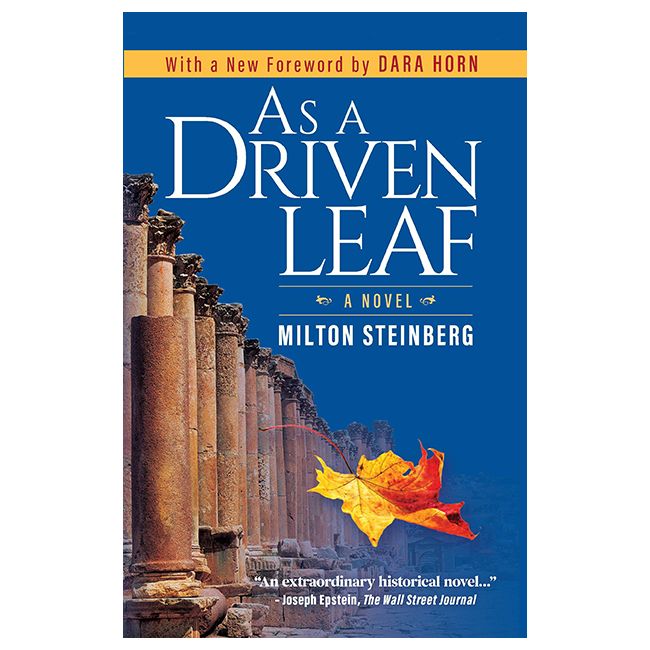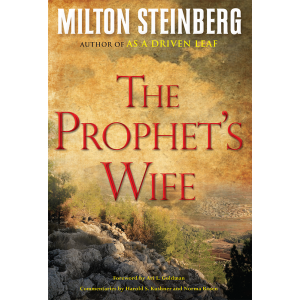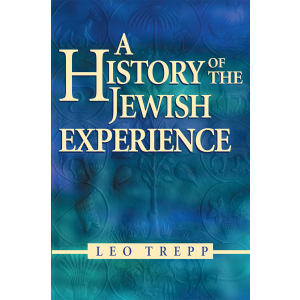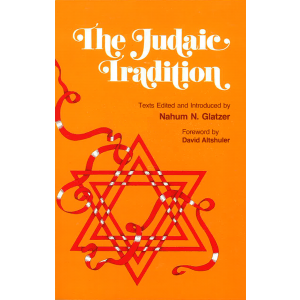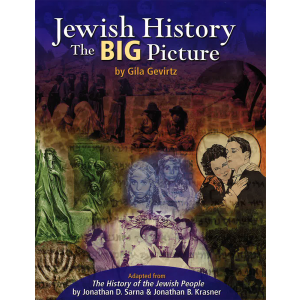As a Driven Leaf: Foreword by Dara Horn
With a New Foreword by Dara Horn
Read it again for the very first time.
In a powerful foreword that considers the events of October 7, acclaimed writer Dara Horn invites us to look beyond the theme of assimilation vs traditionalism and read As A Driven Leaf now to explore the challenge of maintaining a distinct Jewish culture while engaging with an outside world that is too often bent on conquest.
Like Rabbi David Wolpe and Chaim Potok, the foreword authors for previous editions of this enduring classic, Horn views the novel’s themes through the lens of contemporary experience, offering interpretations and insights for a whole new generation of readers while inviting a refreshing reread by those for whom it is already beloved. All three forewords, as well as two discussion guides and a note from the publisher, are included in this updated version.
A literary masterpiece, As A Driven Leaf is still regarded as a major influence on contemporary Jewish life and thought. Its gripping tale of renegade Talmudic sage Elisha Ben Abuyah’s struggle to reconcile his faith with the allure of Hellenic culture during the Rabbinic age in Roman Palestine transcends its historical setting with its depiction of a timeless, perennial feature of the Jewish experience: the inevitable conflict between the call of tradition and the glamour of the surrounding culture.
As a Driven Leaf is an ideal selection for adult education classes and as recommended reading for congregational lay leadership.
“It explores the two forces acting on us today…We are divided between the twin pulls of assimilation in the modern world and faithfulness to the tradition of the old.” —from the foreword of Rabbi David Wolpe
“A novel of ideas and passions…An exploration of Judaism in conflict with a vigorous and powerful surrounding culture.” —from the foreword of Chaim Potok
- Publishers note
- Foreword by Dara Horn
- 2015 edition Foreword by Rabbi David Wolpe
- 1996 edition Foreword by Chaim Potok
- Prologue and Novel
- A Note from the Author
- New Discussion Guide by Dara Horn
- 2015 Discussion Guide by David Wolpe
- About the Author and Contributors
“An extraordinary historical novel…” —Joseph Epstein, The Wall Street Journal
"The extraordinary success of The Nazarene will in a sense pave the way for this book, which also has a Palestinian setting, and a religious motive. The period is later -- the early second century -- and the story deals with Elisha ben Abuyah, Jewish rabbi, a dissenter whose life was torn by internal struggles towards faith. It is a book which should appeal to the market of Lion Feuchtwanger's The Jew of Rome, for Elisha ben Abuyah was virtually another Josephus, betraying his people to the Romans, despised by both sides. A childhood under Hellenistic influence; an adolescence and early youth under strict Jewish teachers, a marriage without love, and the beginning of a lifelong attempt to rationalize his beliefs. The story of a failure, of the ultimate discovery that Faith is essential to Life, and that not all elements can be fitted into the pattern of Euclid, that reason alone cannot control life. Semi-historical, semi-biographical, but written as fiction, with whole periods -- unknown to historians -- filled in. Not a book for the average reader, but a book that those interested in far off periods of history which have their parallels today, and in the search for a faith as a motive of life, will find interesting and challenging."—Kirkus ReviewsJan. 29, 1940
“Perhaps so completely frustrated a life has never before been presented in fiction. Sheer beauty!” —Christian Herald
"Fresh and exciting...Its people are as vibrant as the jostling shopping crowds in the Loop." —Chicago Tribune

